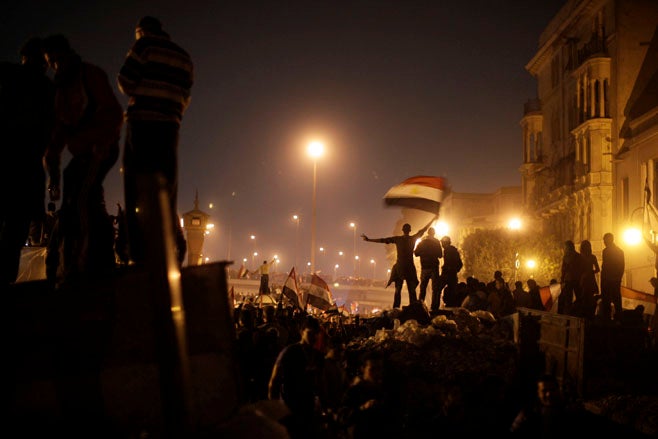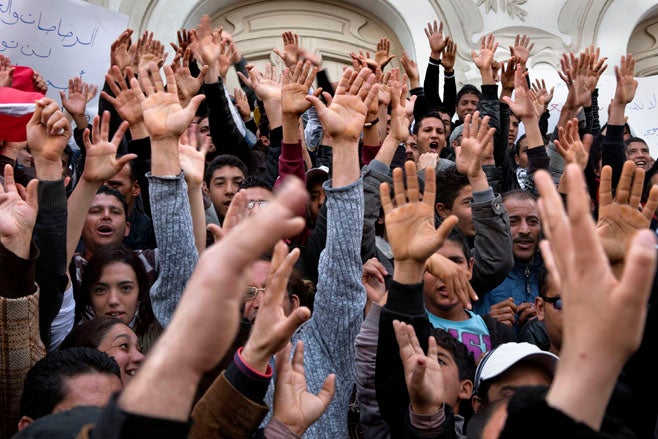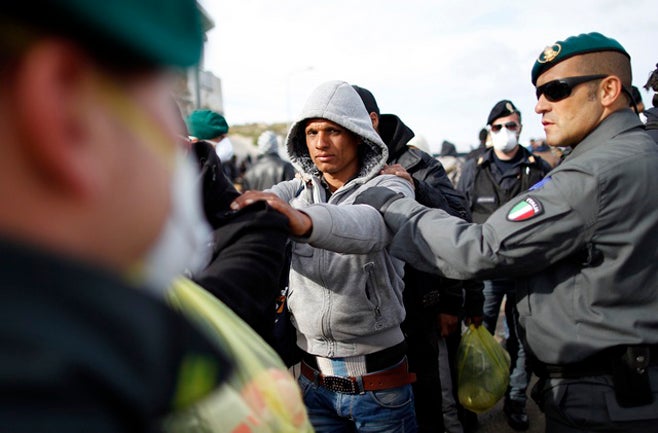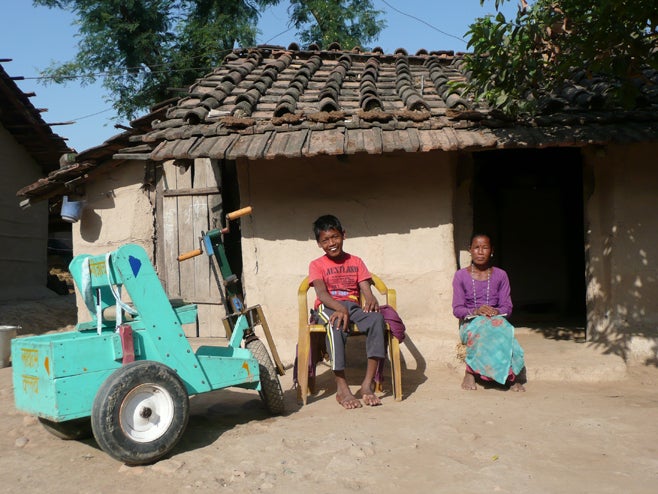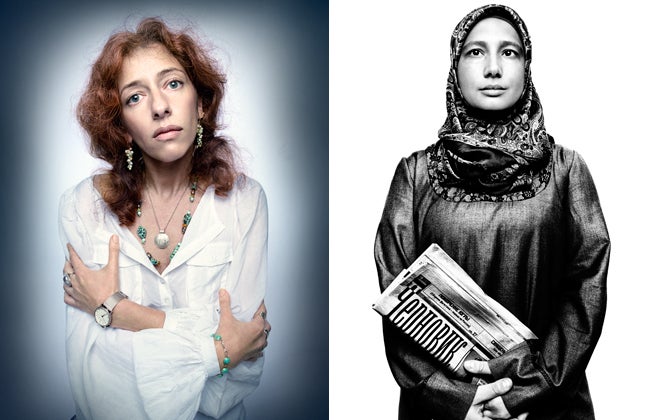Human rights developments in Kenya were dominated by the implementation of a new constitution and related judicial and police reforms, and the International Criminal Court (ICC) cases against six Kenyans whom the ICC prosecutor accused of crimes against humanity. The alleged crimes were committed during Kenya’s post-election violence in 2007 and 2008. Kenyan politicians resisted the ICC process, claiming the judicial and police reforms underway gave sufficient cause to return the cases to Kenya. But there was little progress on the ground in terms of accountability for post-election violence or human rights violations by security forces.
The New Constitution and the Reform Process
The new 2010 constitution propelled a series of reforms, including in the judiciary and the police. It transferred many powers of the attorney general—a political appointee—to the newly autonomous Directorate of Public Prosecutions; this was a critical shift, given that outgoing Attorney General Amos Wako’s record was marked by refusing to prosecute, or arbitrarily terminating, cases against political heavyweights, including for political violence and large-scale corruption.
The constitution provided for new appointments for chief justice, deputy chief justice, director of public prosecutions, and attorney general. In an initial false start in January, President Mwai Kibaki unilaterally announced appointments for the first three positions. Civil society groups filed a lawsuit against Kibaki, charging that the move violated the constitutionally mandated consultative process for appointments, and a court ruled in their favor. Parliament also rejected the appointments as unconstitutional. Under pressure, Kibaki withdrew the appointments. In May the Judicial Services Commission conducted a transparent interview process, leading to the naming of Dr. Willy Mutunga and Nancy Baraza, well-respected reformers, as chief justice and deputy chief justice. However, the procedure for selecting the director of public prosecutions was not transparent. Further reforms included the naming of judges to a new Supreme Court.
Police reform proceeded slowly. In August and September parliament passed two police reform bills that bring the Kenya Police and the previously separate (and often politicized) Administration Police under one command structure, and establish a civilian National Police Service commission, which will play a role in police recruitment, training, and disciplinary proceedings. In November parliament passed a Independent Policing Oversight Authority bill, which could be critical in assuring accountability. Police attempted to initiate a purely internal vetting process in June, but the process was suspended over criticism of the lack of civilian oversight.
The ICC Kenya Cases
In December 2010 ICC Prosecutor Luis Moreno Ocampo requested summonses for six Kenyans suspected of organizing and funding crimes against humanity during Kenya’s post-election violence in 2007 and 2008. Although the government has regularly pledged cooperation with the ICC, the naming of suspects—Francis Muthaura, Uhuru Kenyatta, and Hussein Ali in one case, and William Ruto, Henry Kosgey, and Joshua arap Sang in another—provoked attempts by the government and parliament to avoid ICC jurisdiction.
In December 2010 parliament called on the government to withdraw from the Rome Statute. The government did not heed parliament’s call, but launched an unsuccessful campaign to convince the United Nations Security Council that the Kenya cases should be deferred, claiming they posed a threat to international peace and security.
Kenya then filed an “admissibility challenge,” claiming the ICC could not exercise its jurisdiction as a court of last resort because Kenya was already investigating the election violence. The ICC rejected the challenge, finding no evidence that Kenya was investigating the same suspects for the same crimes.
In September the court initiated “confirmation of charges” hearings to determine whether the cases should continue to trial. The hearings were marked by attempts by opponents of accountability to intimidate persons perceived to support the ICC. In September relatives of one ICC witness were physically assaulted and forced to relocate.
Accountability and Impunity in Kenya’s National Justice System
Efforts to convince the ICC of progress toward bringing election violence suspects to book in Kenya were not matched by concrete actions. President Kibaki announced in December 2010 that the government would establish a local tribunal, but took no steps toward doing so. A few election violence cases proceeded through the justice system, with one new murder conviction in 2011, but cases that resulted in convictions did not target planners of the violence. At this writing no security officers had been convicted for hundreds of killings and scores of rapes attributed to them during the election violence. At least 19 victims of police shootings have won civil suits, but the government has not paid the court-ordered compensation.
The government continued to deny responsibility for extrajudicial executions, enforced disappearances, and torture during a 2008 security operation in Mt. Elgon region. NGOs filed cases against the government at the East African Court of Justice, the UN Working Group on Enforced or Involuntary Disappearances, and the African Commission on Human and People’s Rights. Local organizations documented over 300 cases of persons “disappeared” between 2006 and 2008, some by the Sabaot Land Defence Forces, a militia, but most by the army. The government took no new steps to investigate the “disappearances”, with the exception of one inquest, or to exhume mass graves.
Extrajudicial killings attributed to the police remained unpunished. No one was arrested for the killings of police whistleblower Bernard Kiriinya in 2008; human rights activists Oscar Kamau King’ara and John Paul Oulu in 2009; or Kenneth Irungu, a teacher killed in March after inquiring into the abduction and murder of two of his cousins by suspected police. Police caught on camera shooting unarmed civilians on Nairobi’s Langata Road in January 2011 were suspended but later reinstated. In one exception to the impunity trend, in May a Kilifi magistrate filed murder charges against four police suspected of killing unarmed civilians in 2007; the case was proceeding at this writing.
The Truth, Justice and Reconciliation Commission began public hearings in April on human rights violations committed in Kenya from 1963 to 2008. The hearings afforded victims an important opportunity to testify about abuses by state agents in an official forum, but the commission’s insufficient funds, short operational time frame, and organizational shortcomings limited its impact.
A witness protection agency was formally launched in mid-2011, but has been unable to operate due to inadequate funding.
Human Rights Defenders
In September 2010, Ugandan police arrested Al-Amin Kimathi, director of the Nairobi-based Muslim Human Rights Forum, when he visited Uganda to observe proceedings against Kenyans accused of the July 2010 Kampala bombings who had been rendered to Uganda without due process. Kimathi, charged with terrorism, murder, and attempted murder, was held in pre-trial detention in Uganda for a year before the charges were dropped in September 2011. In May Kenya deported Clara Gutteridge, a British fellow with the Open Society Justice Initiative who was researching abuses by East African governments in the context of counterterrorism operations, including Kimathi’s case. Kenya claimed Gutteridge’s activities were “a threat to national security.”
Somalia and Refugee Rights
In March Kenya intervened in Somalia’s civil war, supporting pro-Transitional Federal Government militias that committed human rights violations. In October, following the abduction of four foreigners from Kenya by Somali militants or pirates, Kenyan troops invaded areas of Somalia controlled by the militia group al-Shabaab.
Police arrested and unlawfully returned some Somali asylum seekers crossing into Kenya. Most reached Kenya’s refugee camps via dangerous back roads to avoid police arrest and extortion, exposing themselves to bandits who rob and rape. The Liboi screening center near the border remained closed.
Kenya delayed opening two new camps—Ifo Extension and Kambios—claiming they would attract more Somalis. Instead, it proposed building new camps in Somalia, a dangerous proposition given the ongoing fighting. By August when the two camps finally opened, over 400,000 refugees lived in three camps built for 90,000. Movement to the new camps encountered delays due to local community opposition. Reports of rape in the camps increased dramatically and almost always went unpunished. People with disabilities, especially mental disabilities, had limited access to medical and social services.
Women’s, Children’s, and LGBT Rights
The Kenyan government undertook to improve access to pain treatment and palliative care. Access to such care has been poor, particularly for hundreds of thousands of children suffering pain from cancer, HIV/AIDS, or other diseases. Eleven government hospitals are in the process of creating palliative care units, and at least three were functional by September. In August the government launched the first National Cancer Control Strategy, which recognizes the importance of pain treatment and palliative care.
Kenya’s maternal mortality ratio remains high, at 488 deaths per 100,000 live births. About 3,000 fistula injuries occur annually. The department of reproductive health is developing a fistula policy, but the government has failed to effectively address recurrent health system problems, including inadequate emergency obstetric care facilities and lack of accountability, which contribute to fistula and maternal deaths.
In December 2010 the Kenyan High Court ruled in favor of Richard Muasya, an intersex individual, for the inhuman and degrading treatment Muasya suffered at Kamiti Maximum Prison. Muasya and other intersex individuals are appealing the court’s decision not to recognize intersex persons in Kenyan law. Kenyan law continues to criminalize homosexual conduct, despite mounting evidence that the law inhibits effective HIV/AIDS prevention and treatment programs.
Key International Actors
The African Union supported Kenya’s drive to defer ICC cases against post-election violence suspects, increasing concerns over the body’s commitment to accountability. The UN Security Council, however, did not grant the deferral request.
The United States supported counterterrorism initiatives in Kenya and East Africa. FBI agents were involved in the interrogations of Kimathi and other Kenyans held in Uganda, despite their knowledge of due process violations against the suspects.
The UN and most donor states appropriately rejected Kenya’s suggestion that camps be built in south-central Somalia to house Somalis fleeing conflict, human rights abuses, and famine.
